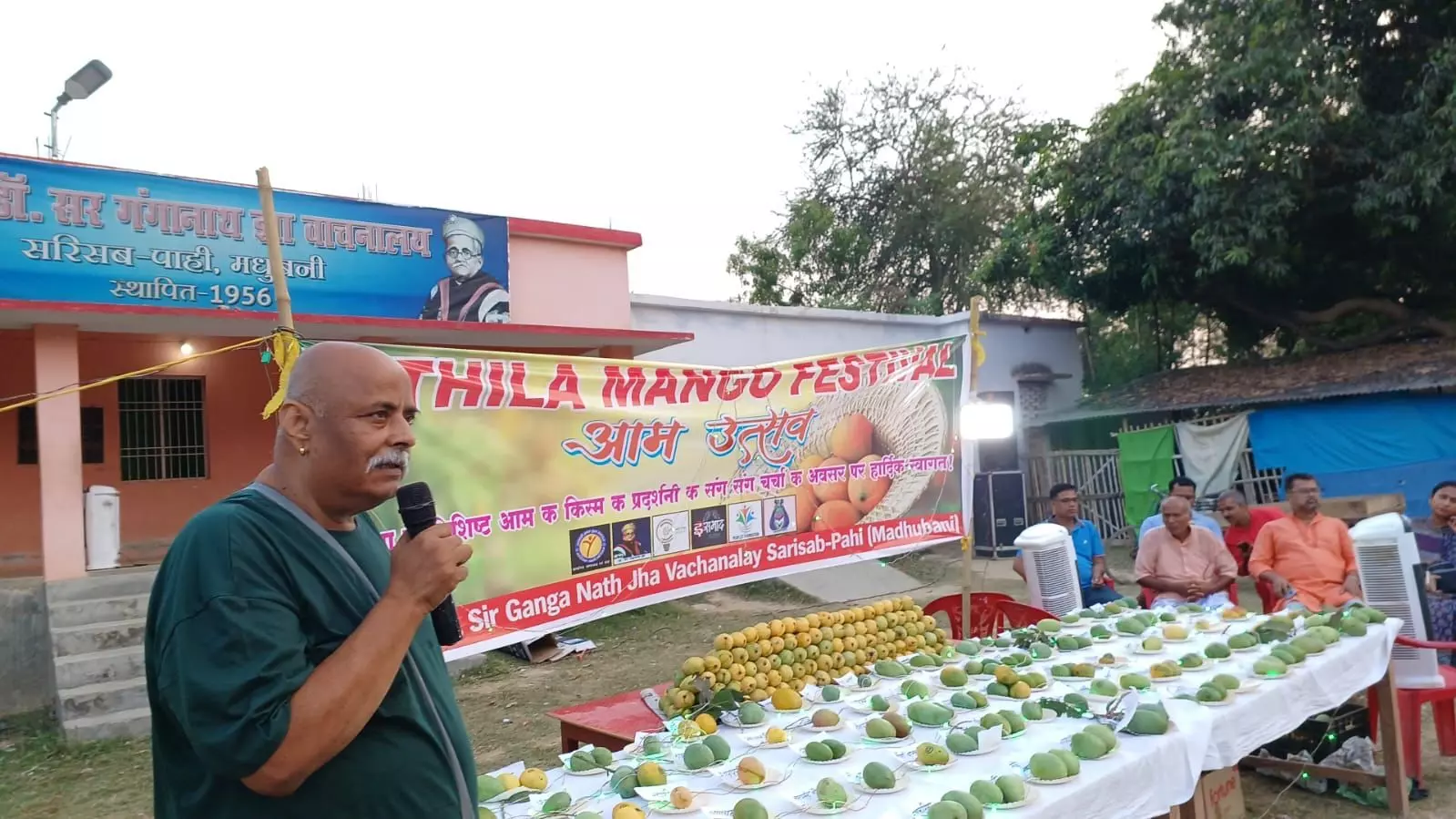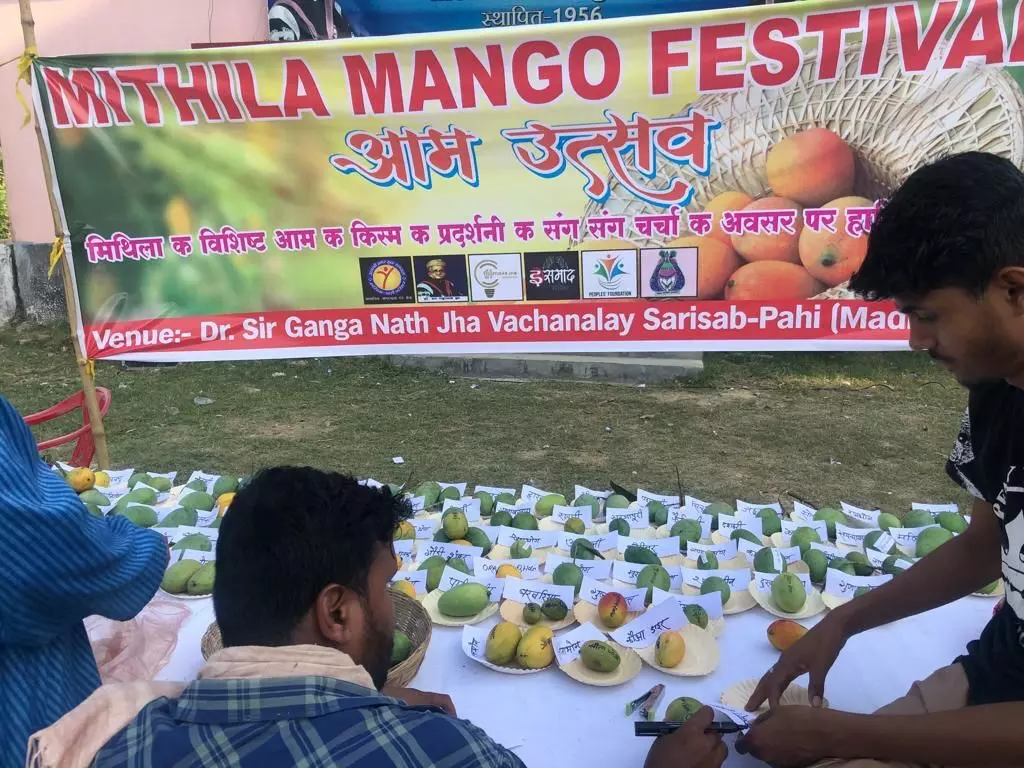For a guest, there could hardly be a worse faux pas than farting in his host’s drawing room. But the uncivil act has made it to the list of unique mango varieties in Bihar. ‘Pahun Padauna’ or guest’s fart is a mango variety put on display at Mithila Mango Festival in the Madhubani district.
Honourable mentions in the list also include Bauasin Bhog which is named after a bride’s beautiful face. Bauasin is translated as daughter-in-law in Maithili language which is widely spoken in Bihar’s Mithila region. Also, another mango variety is named Sundar Pasand simply because it’s sundar or pretty in appearance.

Several varieties of mangoes such as Lakshmeshwar Bhog, Gulab Khas, Heera Dagi, Shah Pasand, Faizli, and Durga Bhog were put on display.
The Mithila Mango Festival which was organised by Ganganath Public Library on June 10 and June 11 witnessed as many as 167 varieties of mangoes which are grown in dozens of districts such as Darbhanga, Purnea, Muzaffarpur, Madhubani, Gaya, and Patna. The Mithila Mango festival was organised by two mango aficionados named Madan Jha and Amal Jha.
“The Mithila Mango Festival at Sarisab-Pahi in Madhubani not only celebrates the delicious fruit but also acts as a catalyst for economic development, promotion of tourism and preservation of traditional agricultural practices,” Madan Jha told Gaon Connection.
“It is an event that attracts mango enthusiasts, tourists and individuals interested in discovering the unique mango heritage of Mithilanchal region. Each mango variety has its own distinct characteristics, including differences in taste, aroma, colour and size,” he added.
Also Read: Bad news for mango lovers. Production of the fruit might take a hit this year.
Madan Jha, organiser of the event said, “The people attending the Mango Festival got the chance to witness 167 varieties of mangoes in the same auditorium — an experience which is unparalleled”.
To add festive cheer in the mango festival a competition was also organised. “Several people actively participated in the competition that we had organised on how many mangoes can be eaten in five minutes. The winner ate 21 mangoes in five minutes!,” the organiser exclaimed.
Some other traditional varieties of mangoes such as Lakshmeshwar Bhog, Gulab Khas, Heera Dagi, Shah Pasand, Faizli, and Durga Bhog were also put on display. This two-day event serves as a platform for the visitors to interact with various farmers and scientists.
Also Read: GI tag for Rataul mango variety of Baghpat in Uttar Pradesh
Girendra Nath, a farmer and blogger from Purnea district who participated in the festival informed Gaon Connection that the mangoes he had brought are known as ‘beeju aam’.
“In these, the seeds [beej hence named beeju] of mangoes are scattered on the field and these seeds give rise to the mango trees which eventually bear fruits,” the farmer told Gaon Connection.

The unique names of the mangoes were kept because of their rich and varied history.
He also talked about the uncanny names that these mangoes possess and said, “Our previous generation gave these unique names to the mangoes around a decade ago. The unique names of the mangoes were kept because of their rich and varied history which dates back from the time of the ancestors of the farmers and their villages.”
The farmer also stated that the mangoes in the festival are completely organic and didn’t involve grafting techniques during their initial stages.
Also Read: Is your Dussehri mango less than perfect this year? Blame it on climate change
Amal Jha, co-organiser of the Mithila Mango Festival said, “Such a festival never happened here before 2022 and therefore we thought of providing a platform to farmers and scientists to discuss the varieties of mangoes, the techniques used in growing it and to create awareness around the importance of these delicious fruits”.
Around 30-35 farmers attended this unique festival. Each of them brought at least five types of mangoes. Apart from the display of mangoes, the Mithila Mango Festival also featured talks on the different techniques of mango cultivation.


















